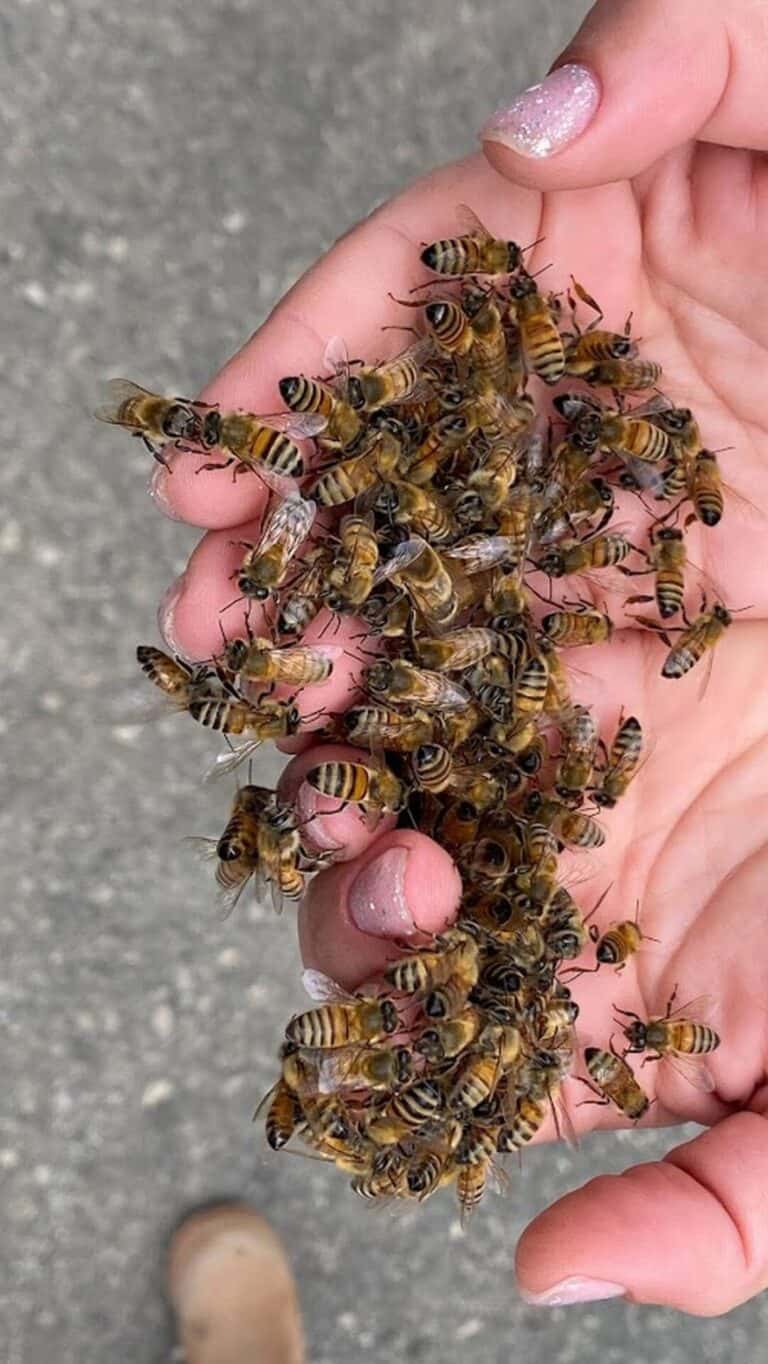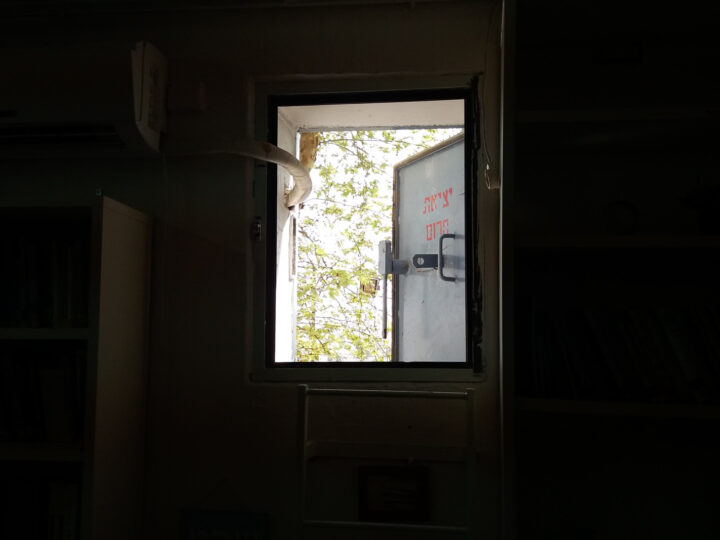Some weeks ago, I was driving the car on my round of usual Friday morning tasks, when I noticed something strange moving and shifting around on the back windscreen of my jeep.
“What the hell?” I said aloud.
It looked like a swarm of insects, but that didn’t make sense. I was driving about 60km an hour on a busy road. How could insects manage to hang on at that speed and in that wind?
The moment I saw an opportunity, I pulled off the road into a garage, and as soon as I stopped, a cloud of bees engulfed the car. I got out and went round the back to take a look.
Sure enough, there were two large swarms of bees on the back windshield. They’d formed two inverted pyramid-type shapes and seemed to be hanging on from under the lip of the roof. There had to be hundreds of bees there, and dozens more in the air.
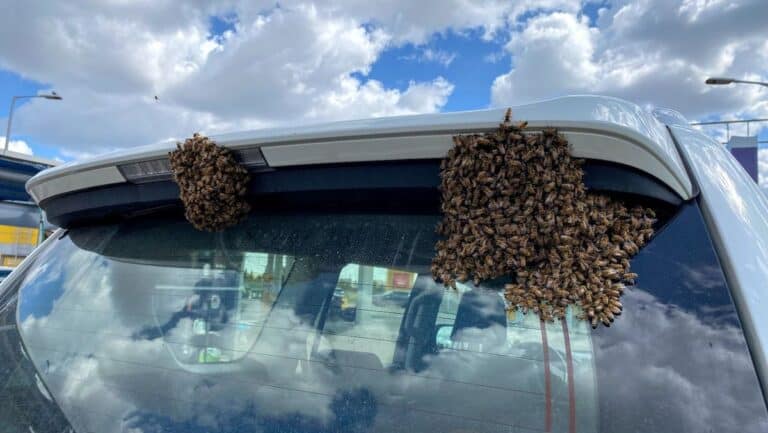
I stood there flummoxed as the bees whipped frantically around me. No-one in the gas station had noticed, and since I didn’t know what else to do, and was near my destination anyway, I hopped back into the car and drove the last few kilometers (at a slower pace this time), to my next stop.
There, I was sure, the bees would abandon the car for a nice stationary eucalyptus tree.
I was gone for an hour, and when I got back a woman and child stood next to the car taking video.
“Is this your car?” she asked as I came near.
“What a thing!” she said. “I have never seen anything like this in my life.”
She carried on taking video as the bees buzzed into different shapes across the glass, then began walking off with her son, chuckling and no doubt pressing send to all her social networks.
A young man walked over next. “What are you going to do?” he asked me. “You have to look after the bees.”
“I don’t know,” I admitted. “But I have a neighbor with bees, so I’m going to drive to him.”
“Thank you,” said the man, folding his hands into a namaste. “Thank you so much for saving the bees.”
I drove home slowly, disturbed by my newfound Friday morning responsibility, carefully watching the pyramid of bees bouncing and swaying on the windshield through my mirror.
Cars honked, drivers stopped me at the lights to ask if I knew what was happening back there, others drove behind taking video.
By the time I had rolled back into the village and stopped outside my house, I discovered that my neighbor had stopped looking after bees.
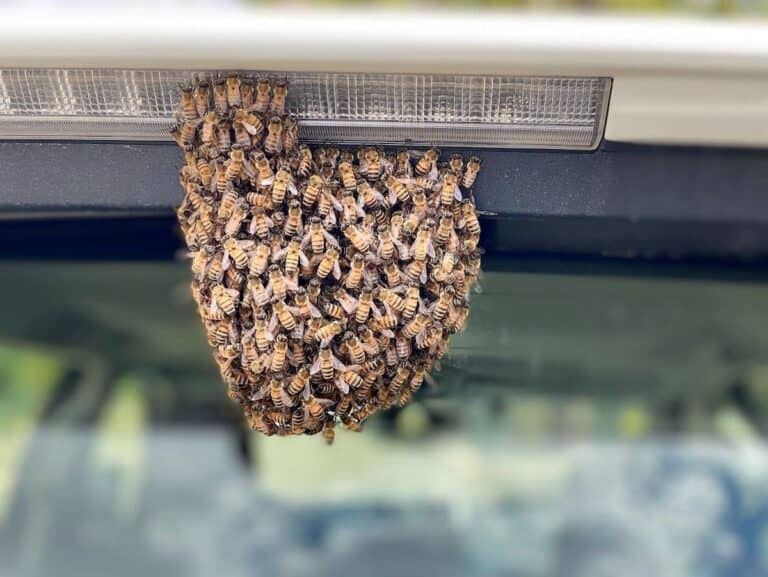
“You need Magen Dvorim Adom,” said another neighbor who walked down the street to see what all the commotion was.
“Magen David Adom?” I said, for a moment thinking she’d suggested I call Israel’s emergency response network – which translates roughly as David’s red shield – and which I was sure was just for humans.
“No, Magen Dvorim Adom,” she said laughing. A literal translation of which is “bees’ red shield”.
We looked up the number and called them immediately.
About half an hour later, husband and wife Sharon and Asaf Goshen Philip, from Even Yehuda, turned up outside.
“What a sweet swarm,” said Sharon, patting them gently with her hand and posing for a few photographs for her Instagram. “I’ve never seen one on a car before.”
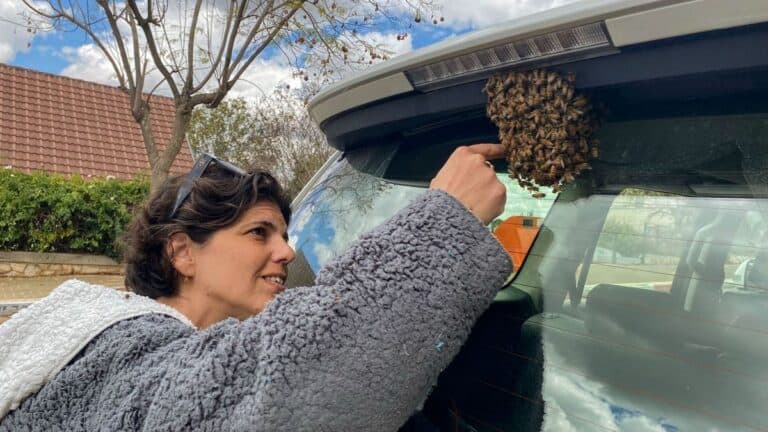
She and her husband, who just happened to be in the area because they’d rescued another errant swarm in a village nearby, found an old Starbucks box at the side of the road and began transferring the bees into the box — with their bare hands.

“Do you want to have a go?” she asked me, as she and Asaf scooped up handful after handful of the bees, searching through them carefully with their fingers looking for the queen.
“No, I’m fine, thanks,” I said, standing a safe distance away.
Sharon had a bee on her cheek the whole time we spoke, and it took everything I had to resist the urge to knock it off.
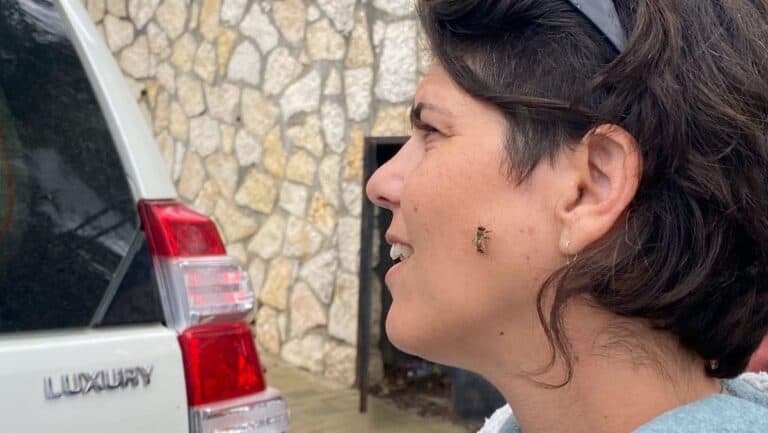
Getting the bees into the box turned out to be more complicated than expected, even after they’d found the queen and placed her in a little yellow clasp inside the box. Driving at speed on a highway had obviously upset them enormously.
So Asaf and Sharon taped the box to the back windshield, made sure the queen was in her temporary shelter inside, all the while giving us a fascinating explanation of what the bees were up to, who is who, and what they all do.
Finally, they decided to return in the evening, when hopefully the bees would have retired to the box for the night.
Asaf did get stung on the face in the process, but they both seemed fairly blasé about it.
“His face will look like this tomorrow,” said Sharon laughing, showing me an alarming picture of her husband with his face ballooned to about twice its normal size.
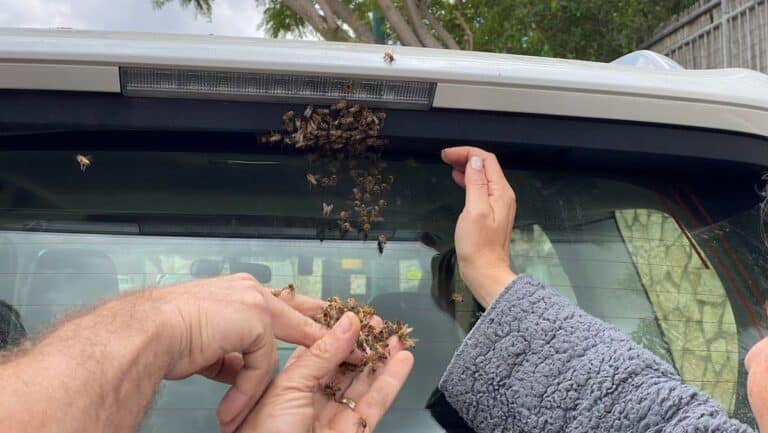
Bees’ Red Shield – which despite its cute literal translation is officially called the Israeli Honey Bee Care Association in English, is an NGO run entirely by volunteers.
It was set up by 10 bee lovers in response to the emergence of bee colony collapse, which is still a concern worldwide. Today there are around 200 volunteers in the organization, and they will come and rescue any bee swarms – like that on my car – free of charge anywhere in Israel.
The swarms are then moved to a professional home, to an amateur beekeeper, or some other natural habitat where they will be safe. The NGO also carries out educational programs with adults and children.
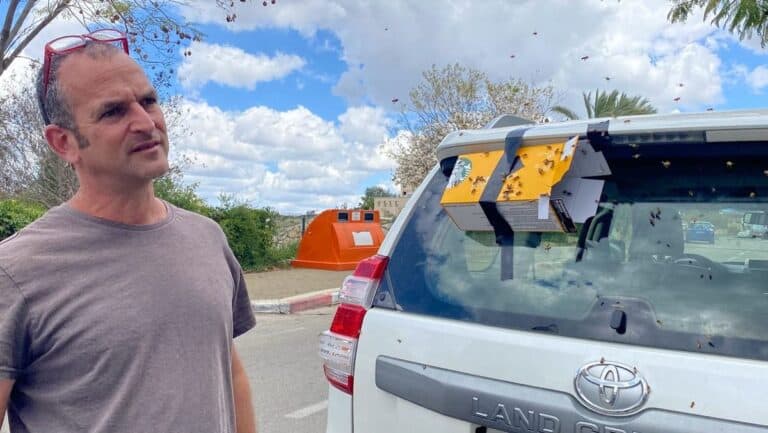
Sharon and Asaf have been working with the organization for the last three years and have carried out about 100 bee rescues. This year alone, they’ve rescued about 40 hives.
“In the spring the organization can get anything up to 50 calls a day,” Sharon, who works for a Sexual Assault Crisis Center in the Sharon area, told me.
She first got interested in bees a few years ago when she was teaching in a school and they discovered a hive in the walls. “I was more curious than afraid,” she said. “I saw how the beekeeper removed them. It was one of the moments that changed my life. The bee hive looked like chaos, but it was so organized and accurate. It was miraculous.
“Our goal is to keep bees safe, but I also feel I benefit from them as well. When we look after the hives I feel I’m in my zone,” she said.
Back in my village, the story of the bees on the car had spread widely, and many people came to have a look at the bees that still flew busily around the box on our car.
By evening all was quiet, and eventually Sharon and Asaf returned to take the box and find our hive a good home, leaving us with a new sense of understanding about bees, a profound respect for this unexpected Israeli volunteer organization, and – truth be told – a little sadness that we hadn’t spontaneously decided to set up a hive in our back garden.
